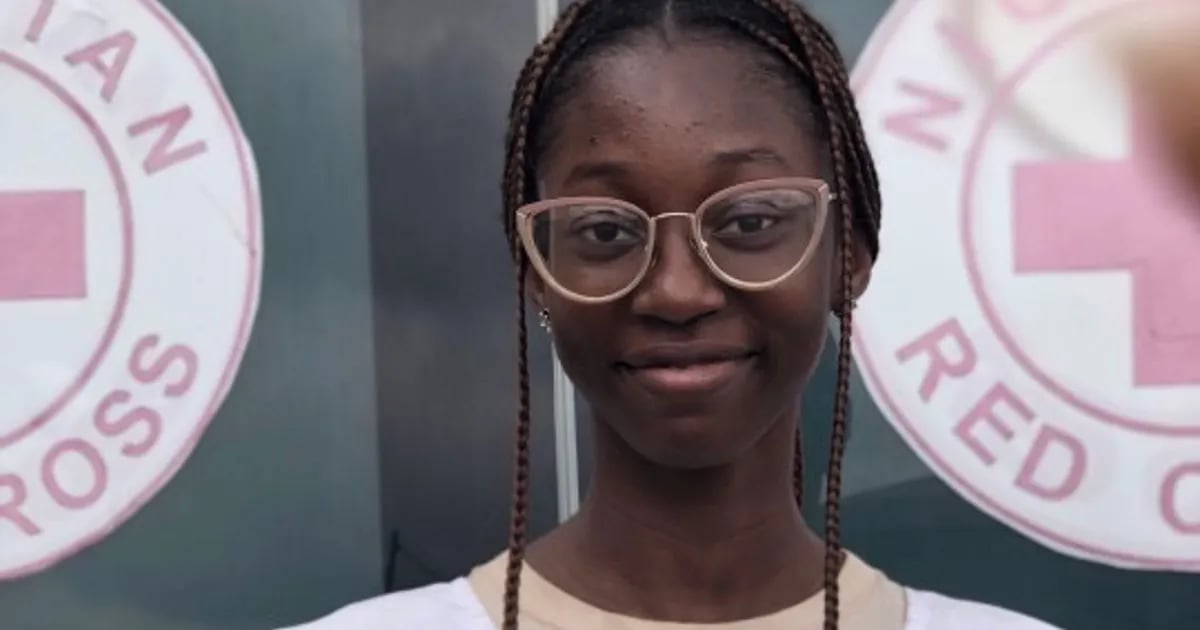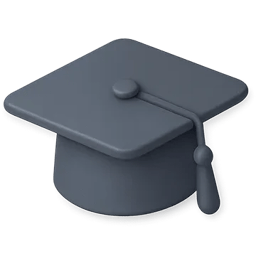Bonjour, je m'appelle Precious Ojo et je viens d'Ibadan, au Nigeria. J'ai étudié au Livingstone College of Arts and Sciences, et j'ai toujours su que je voulais devenir chercheuse. Mais pendant longtemps, je n'avais aucune idée par où commencer. Tout a changé lorsque j'ai découvert le programme Next Nobel Research Scholar.

Pourquoi j'ai postulé au programme Next Nobel
La bourse Next Nobel, gérée par Indigo Research, vise à combler l'écart entre les genres dans la reconnaissance académique de haut niveau, comme le Prix Nobel, où les femmes ne représentent actuellement que 6% des lauréats. Elle donne aux jeunes femmes de 14 à 19 ans de toutes les nations les moyens de devenir de futures leaders en recherche grâce à un mentorat de premier ordre, des ressources et des plateformes.
Quand j'ai vu le programme, j'ai senti que c'était l'opportunité parfaite. J'avais déjà une certaine expérience en recherche, mais il me manquait la structure et les conseils pour mener mon propre projet. J'y ai vu ma chance de développer réellement quelque chose qui me passionne avec un soutien approprié. La partie mentorat m'a particulièrement interpellée, car avoir quelqu'un d'expérimenté pour vous guider fait une énorme différence dans la recherche. Oh, et la possibilité d'être publiée ? C'était énorme. Je savais que cela pourrait m'aider à passer de "J'ai une idée" à "Je contribue réellement à quelque chose de significatif dans le domaine".
En tant que boursière Next Nobel, je suis l'une des quatre étudiantes au niveau mondial à avoir reçu une bourse complète d'une valeur de 28 000 dollars. Grâce à cette opportunité, je suis encadrée par des professeurs d'institutions de classe mondiale - mon mentor vient de l'Université de Pennsylvanie - et je développe une recherche originale avec un potentiel de publication. Le programme comprend également la possibilité de présenter à la Conférence Académique Indigo, d'obtenir des crédits universitaires de l'Université de Californie à Santa Barbara, et de recevoir un soutien pour soumettre mon travail à des revues et conférences de premier plan. En gros, vous obtenez les outils, le soutien et la visibilité pour devenir la prochaine chercheuse qui changera la donne et peut-être même une future lauréate du Prix Nobel.
Le Processus de Candidature
Disons simplement que le processus de candidature n'était pas pour les âmes sensibles ; c'était intense, mais aussi incroyablement gratifiant. La bourse Next Nobel ne voulait pas seulement une idée ; ils voulaient de la profondeur. Ils nous ont demandé de décortiquer nos idées, de les remettre en question, de les rechercher et de les tester. Ce n'était pas juste "soumettez votre idée et passez à autre chose" ; c'était "prouvez que ça compte, et prouvez que vous êtes la personne pour le réaliser."
Ce qui a aidé, c'est qu'ils nous ont fourni un modèle Google Doc pour tout organiser avant de soumettre, ce qui a facilité le suivi. Mais soyez prêts à rédiger des essais, des annotations, des bibliographies, le tout. Ça m'a poussée à bout, mais ça a aussi affiné ma clarté de pensée.
J'ai passé environ trois semaines à préparer ma candidature.
Semaine 1 : Brainstorming, affinage de ma question de recherche, et lecture de fond pour identifier les lacunes dans la littérature actuelle. J'ai également réfléchi à mes motivations personnelles pour choisir le sujet, comment il se connecte à la fois aux problèmes environnementaux mondiaux et à la sous-représentation historique de la santé des femmes dans la science.
Semaine 2 : Élaboration du plan et rédaction de mes essais, en m'assurant que chaque section était claire et basée sur des preuves.
Semaine 3 : Édition intensive, révision pour la clarté, et vérification de toutes mes sources.
Dans l'ensemble, le processus m'a aidée à affiner non seulement mon écriture mais aussi ma pensée scientifique. Il m'a rendue plus intentionnelle dans la connexion de la passion avec le but et dans la poussée pour une recherche qui centre les communautés et les problèmes souvent laissés de côté dans la conversation scientifique grand public.
Mon sujet de recherche
J'ai rédigé mes essais sur un sujet qui se situe à l'intersection de la santé environnementale, de l'épigénétique et de la biologie reproductive féminine : comment les microplastiques peuvent reprogrammer épigénétiquement le système reproducteur féminin. Ma question de recherche centrale était : Comment les microplastiques influencent-ils la reprogrammation épigénétique féminine, et quels sont les effets potentiels à long terme sur la santé reproductive ? Ce sujet me préoccupait depuis un certain temps, et la candidature m'a donné l'occasion de formaliser ma curiosité en une question de recherche ciblée.
Parcours académique et activités extrascolaires
Pour mon parcours académique, j'ai envoyé mes relevés de notes et mes résultats au WASSCE. J'avais une moyenne cumulative de 4,85/5,00, combinant mes relevés de notes de Seconde et de Première. Pour le WASSCE, j'ai obtenu huit mentions très bien et une mention bien.

Bien que je n'aie pas soumis d'activités extrascolaires traditionnelles car elles n'étaient pas demandées, j'ai détaillé mon stage de recherche au département de biochimie de l'Université d'Ibadan. Là-bas, j'ai travaillé dans le laboratoire de recherche sur la drosophile, acquérant une expérience pratique en analyse de données qualitatives et quantitatives. Ce stage m'a permis de concevoir des expériences, de collecter des données et d'effectuer des analyses. J'ai également obtenu une lettre de recommandation de mon professeur de recherche, soulignant mes capacités et l'impact que j'ai eu pendant mon séjour là-bas.
En me concentrant sur ce stage, j'ai pu démontrer ma capacité à mener des recherches significatives, ainsi que mon engagement à utiliser la recherche pour aborder des questions biologiques et environnementales importantes, comme l'impact des microplastiques sur la santé reproductive. Mon expérience en recherche a permis d'illustrer mes compétences et mon dévouement à l'investigation scientifique.
Honneurs et Récompenses
Je me suis concentrée sur la mise en avant des réalisations qui démontraient mes forces académiques et mes contributions potentielles aux avancées scientifiques :
Certificat en Science des Données de Girls Who Code
Quart de finaliste et Ambassadrice étudiante de Technovation Girls
Qualifiée pour l'Olympiade Nationale de Biologie
Ambassadrice en Mathématiques de l'Union Africaine
Finaliste du Défi International de Mathématiques pour les Jeunes
Yale Young African Scholar (Filière Santé Publique)
Bourse et aide financière
Le programme Next Nobel est une bourse de recherche entièrement financée. Elle couvre le mentorat, l'accès aux ressources académiques, aux outils de recherche et aux connexions avec les communautés de recherche mondiales. Heureusement, il n'y avait pas de demande d'aide financière séparée ; tout était intégré dans la candidature principale.
Mon expérience jusqu'à présent
Je suis encadrée par une incroyable docteure diplômée de UPenn et de l'École de médecine d'Emory, et franchement ? Elle est exceptionnelle. Elle est brillante et comprend les subtilités de la navigation dans le domaine des STEM en tant que femme noire. Nous nous entendons vraiment bien, et elle a été tellement encourageante, que ce soit pour décortiquer des articles de recherche ou m'expliquer des idées complexes.
Le processus de recherche en lui-même est exigeant - lire des articles, identifier les lacunes et apprendre à utiliser de nouveaux logiciels de recherche - mais cela m'apprend à penser de manière critique et à poser des questions pertinentes. Je commence à comprendre comment formuler des questions de recherche qui ont vraiment de l'importance. Il ne s'agit plus seulement de trouver des réponses ; il s'agit d'apprendre à poser de meilleures questions et d'accepter de ne pas tout savoir immédiatement.
Conseils pour les futurs candidats
Commencez tôt : Donnez-vous suffisamment de temps pour réfléchir, faire des recherches et écrire sans vous épuiser.
Laissez votre passion vous guider, mais appuyez-la sur des preuves
Mettez en valeur vos expériences : Même si vous n'avez pas accès à des laboratoires sophistiqués, soulignez ce que vous avez fait, comme des stages, des certifications et des compétitions.
Embrassez votre singularité : Si votre idée est peu conventionnelle, cela pourrait être votre force.
Identifiez les lacunes dans la recherche : Ils recherchent des questions percutantes, pas seulement des sujets intéressants.
Leçons apprises
Une leçon importante que j'ai apprise est que la curiosité ne suffit pas ; il faut de la structure. C'est bien de rêver grand, mais si vous ne pouvez pas clairement définir comment vous allez passer du point A au point B, il est difficile pour les autres d'adhérer à votre vision. La structure transforme les idées en impact.
Une autre leçon : Votre recherche compte parce que vous comptez. Pendant trop longtemps, la santé des femmes a été sous-représentée dans la science. Pouvoir centrer ce récit à travers mon travail me semble non seulement important, mais aussi radical et nécessaire.
J'ai aussi réalisé que la persévérance et la détermination sont de véritables compétences de recherche. Toutes les hypothèses ne réussiront pas, et tous les articles ne seront pas immédiatement compréhensibles. La clé est de rester curieuse et de surmonter l'incertitude.
Enfin, soyez ouverte au changement. Ne vous accrochez pas trop à vos idées ; laissez-les évoluer. Les retours, même quand ils piquent, sont inestimables. Certaines de mes avancées les plus significatives sont venues de quelqu'un qui m'a fait remarquer quelque chose que j'avais complètement manqué. Restez humble, restez ouverte à l'apprentissage, et laissez votre recherche grandir avec vous.


